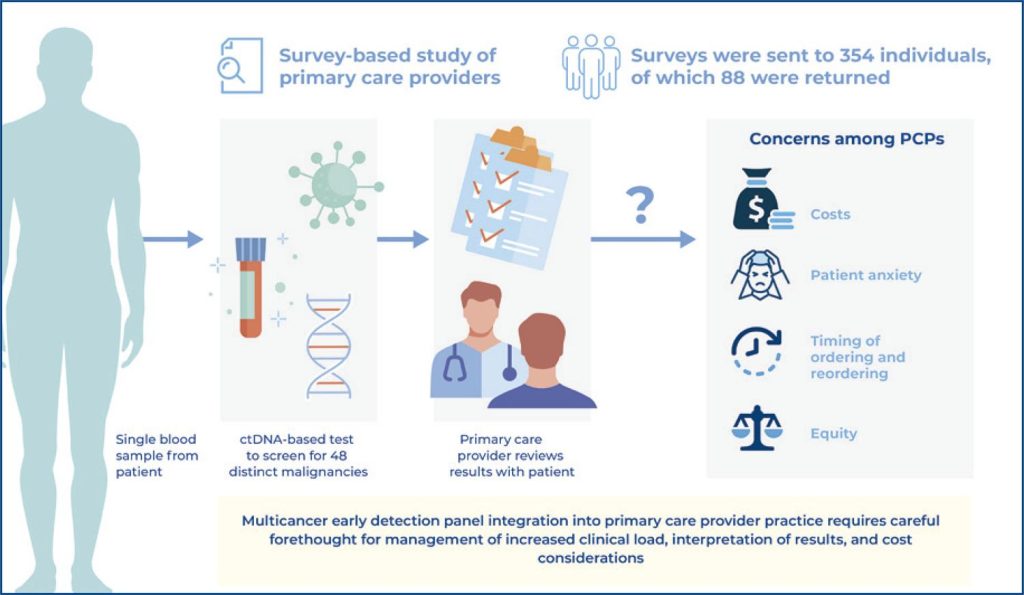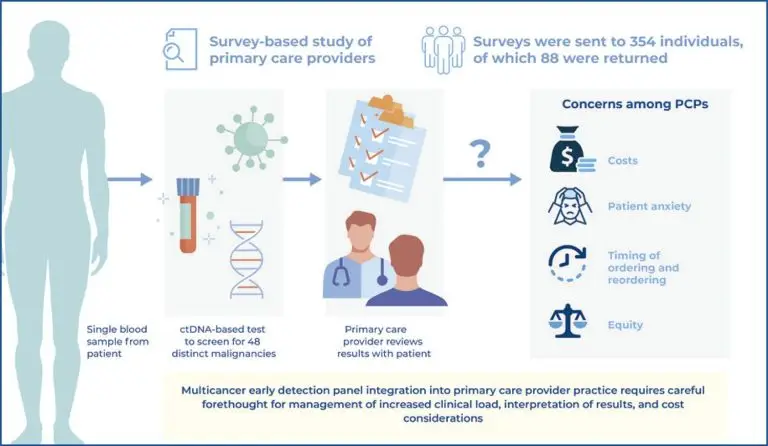einstein (São Paulo). 06/Aug/2024;22:eAO0771.
Perspectives of primary care providers regarding multicancer early detection panels
DOI: 10.31744/einstein_journal/2024AO0771
Highlights
Multicancer early detection panels are novel assays that allow screening for dozens of cancers using a single blood sample.
Data on the optimal workflow for ordering, interpreting, and managing subsequent evaluations of multi-cancer early detection results are lacking.
Primary care providers expressed concerns about the cost and management of subsequent evaluations for a positive multicancer early detection test.
ABSTRACT
Objective
Multicancer early detection panels have recently become available to patients with healthcare provider prescriptions and available funds. These tests utilize circulating tumor DNA (ctDNA) to screen more than 50 cancers using a single blood sample. However, perspectives and data on how the deployment of these tests may impact the practices of primary care providers in terms of implementation, interpretation, documentation, and costs are limited. This study aimed to assess the perspectives of primary care providers regarding the integration of multicancer early detection panels into clinical practice.
Methods
We used a survey to assess the opinions and perspectives of primary care providers, including physicians, nurse practitioners, and physician assistants, across a multistate, tertiary healthcare system. We used a single form consisting of novel questions on familiarity with multi-cancer early detection panels, cost, healthcare equity, documentation, medicolegal, and other concerns. The subgroup analysis was consistent with stratification based on familiarity with ctDNA-based tests and their roles in clinical practice.
Results
Most respondents were unfamiliar with multicancer early detection panels and had not used ctDNA-based tests. Most primary care providers suggested that they would reorder multicancer early detection panel testing at 1- to 5-year intervals and prefer subspecialists for both ordering multicancer early detection panels as well as interpreting their results. Relative concerns differed between physicians and nonphysicians.
Conclusion
The integration of multicancer early detection panels into primary care practice requires careful planning and consideration for the management of increased clinical load, interpretation of results, and cost management.
277




